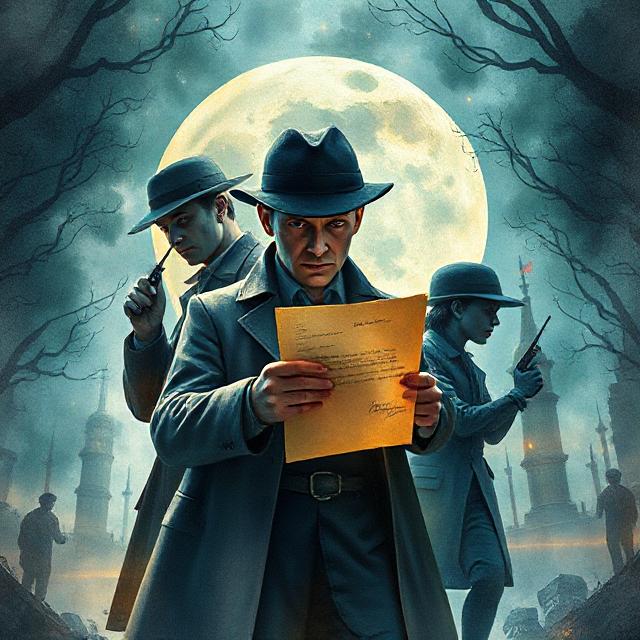AQA GCSE English Literature: Key Quotes You Must Know for Every Text (2025) — Part 3
Welcome back to our high-impact GCSE English Literature revision series! If you’ve been following along, you’ll know our last article tackled ‘Romeo and Juliet’, ‘Jekyll and Hyde’, ‘Frankenstein’, and ‘Pride and Prejudice’ — the heavy-hitters of the AQA curriculum. Now it’s time to dive into four more essential texts that regularly appear in GCSE exams: ‘Great Expectations’, ‘Jane Eyre’, ‘The Sign of the Four’, and ‘The Tempest’. This article breaks down must-know quotes, explores why they matter, and gives you the insight examiners want.
Whether you’re aiming for a Grade 4 or pushing for that elusive Grade 9, this guide will give you the edge. So let’s go, quote by quote.
📚 1. Great Expectations by Charles Dickens
Dickens’ coming-of-age novel is a rich tapestry of character, class, and identity. Expect AQA questions about character development, themes of guilt, ambition, and social mobility.
🔑 Key Quotes and Analysis:
1. “I loved her against reason, against promise, against peace, against hope, against happiness, against all discouragement that could be.”
– Pip’s declaration about Estella.
👉 This quote shows Pip’s obsessive, self-destructive love. It reflects the theme of unrequited love and how Pip’s desires shape — and warp — his identity. It’s a great quote for character and theme essays.
2. “The broken heart. You think you will die, but you just keep living, day after day after terrible day.” – Miss Havisham
👉 Use this for questions on bitterness, revenge, or trauma. Miss Havisham is the living symbol of emotional decay — and this line brings her pain vividly to life.
3. “That was a memorable day to me, for it made great changes in me.” – Pip
👉 This captures the novel’s Bildungsroman structure. Pip’s self-awareness makes it ideal for structure-focused analysis. It also links well to themes of guilt and transformation.
Exam Tip: Pair Pip’s journey with the motif of the marshes — open, bleak, and muddy — representing moral confusion.
👒 2. Jane Eyre by Charlotte Brontë
‘Jane Eyre’ is an AQA favourite because of its feminist themes, Gothic elements, and complex characters. You’ll often be asked about Jane’s independence or morality.
🔑 Key Quotes and Analysis:
1. “I am no bird; and no net ensnares me: I am a free human being with an independent will.”
– Jane to Rochester
👉 Essential for essays on feminism and freedom. This quote shows Jane asserting her equality in a patriarchal society — pure gold in an exam!
2. “Do you think I am an automaton? — a machine without feelings?”
– Jane
👉 Highlights Jane’s emotional intelligence and depth. Great for discussing her inner life, especially in contrast to Victorian expectations of women.
3. “Reader, I married him.”
👉 Iconic. Simple yet powerful. It shifts agency to Jane — she chooses, not Rochester. Use this for narrative voice, structure, and theme.
Exam Tip: Pair Jane’s quotes with Gothic imagery (red room, Thornfield fire) to show the emotional and physical constraints she overcomes.
🔍 3. The Sign of the Four by Arthur Conan Doyle
This detective novella offers a tight, exam-friendly plot with clear themes: colonialism, logic vs. emotion, and justice. You’ll likely get questions on Holmes, Watson, or the mystery genre itself.
🔑 Key Quotes and Analysis:
1. “You know my methods. Apply them.” – Sherlock Holmes
👉 Defines Holmes’ scientific, logical approach. Useful in comparing Holmes to emotional characters like Watson or Tonga.
2. “The emotional qualities are antagonistic to clear reasoning.” – Holmes
👉 Excellent for exploring Holmes’ detachment. Great contrast with Watson, and key to understanding Doyle’s portrayal of rational masculinity.
3. “The treasure is gone,” said Miss Morstan, calmly.
“As a dream when one awakens,” I remarked. “It is all over.” – Watson
👉 This ending quote reflects on materialism, love, and closure. Watson’s romantic perspective vs. Holmes’ pragmatism can be unpacked here.
Exam Tip: Colonial elements (Tonga, the Indian setting) are important for context. Use this to discuss power, racism, and imperialism critically — it can earn top marks.
🌊 4. The Tempest by William Shakespeare
A slightly less common choice than ‘Romeo and Juliet’, but rich in magic, power, colonisation, and forgiveness. AQA loves questions about Prospero, Caliban, and the theme of control.
🔑 Key Quotes and Analysis:
1. “We are such stuff / As dreams are made on; and our little life / Is rounded with a sleep.” – Prospero
👉 Profound and poetic. This quote explores the transient nature of life, a perfect choice for theme questions on illusion, mortality, or reality.
2. “This thing of darkness I / Acknowledge mine.” – Prospero about Caliban
👉 Great for analysis of power, guilt, and colonisation. This is Prospero recognising his own role in shaping Caliban’s ‘monstrosity’. Use it for a nuanced reading of both characters.
3. “You taught me language, and my profit on’t / Is I know how to curse.” – Caliban
👉 Powerful for colonial/post-colonial readings. This shows Caliban’s awareness of cultural imposition. It’s a quote that screams ‘contextual gold’.
Exam Tip: The play’s structure (a classical unifying of time/place) and Prospero’s control of the narrative can be used for top-grade structure and form analysis.
💡 How to Memorise and Use Quotes Effectively
🔄 Use the “QUOTE-AIM” technique:
-
Quote
-
Analysis (language/form/structure)
-
Implication (what it shows)
-
Meaning (theme or character insight)
Here’s an example with Jane Eyre:
Quote: “I am no bird; and no net ensnares me.”
Analysis: Metaphor of a trapped bird — evokes the image of confinement.
Implication: Jane resists Victorian female roles.
Meaning: Links to feminism and freedom — perfect for a character or theme essay.
🧠 Remember the Themes
Examiners love themes. Here are recurring ones across these texts:
| Theme | Great Expectations | Jane Eyre | Sign of the Four | The Tempest |
|---|---|---|---|---|
| Class/Social Status | ✅ | ✅ | ✅ | ❌ |
| Love | ✅ | ✅ | ✅ | ✅ |
| Justice/Revenge | ✅ | ✅ | ✅ | ✅ |
| Power/Control | ✅ | ✅ | ✅ | ✅ |
| Identity | ✅ | ✅ | ✅ | ✅ |
| Colonialism | ❌ | ❌ | ✅ | ✅ |
| Isolation | ✅ | ✅ | ✅ | ✅ |
Exam Hack:
If you forget a quote, paraphrase it as long as it’s accurate and insightful. AQA doesn’t penalise you for imperfect quoting if the point is strong.
📈 Why These Quotes Are Exam Gold
These quotes aren’t just memorable — they tick multiple assessment objectives (AOs):
-
AO1: Clear interpretation and coherent argument
-
AO2: Analysis of language/form/structure
-
AO3: Contextual understanding
-
AO4: SPaG (if applicable in the paper)
📝 Bonus Practice Task
Choose one quote from each text and write one paragraph answering this question:
“How is the theme of power explored in the text?”
Try this structure:
-
Point
-
Evidence (the quote)
-
Technique
-
Context
-
Personal response
🎯 Final Checklist for Each Quote:
✅ Do I understand what the quote means?
✅ Can I identify at least one language technique?
✅ Can I link it to a theme or character?
✅ Can I mention context (Victorian society, colonialism, etc.)?
✅ Can I use it flexibly for different questions?
📚 What’s Next in the Series?
We’ve now covered 12 major texts in the last 3 articles. To read the previous two articles click on the links below.
-
LINK: THEMES AND QUOTES, ARTICLE 1.
-
LINK: THEMES AND QUOTES, ARTICLE 2.
If you haven’t already, make sure you go back and read Part 1 for the foundational texts. Mastering these quotes could make the difference between a Grade 5 and a Grade 9.
✨ Final Thoughts
Quoting isn’t just about memory — it’s about power. The power to shape your answer, show off your insight, and impress the examiner. With these 12 killer quotes, you’re well on your way.
Stick them on your wall. Use them in flashcards. Drill them into your essays. The AQA examiner wants clarity, confidence, and sharp analysis — give it to them.
Share this with your study group, save it for revision, and leave a comment below with your favourite quote. Let’s get talking GCSEs!





